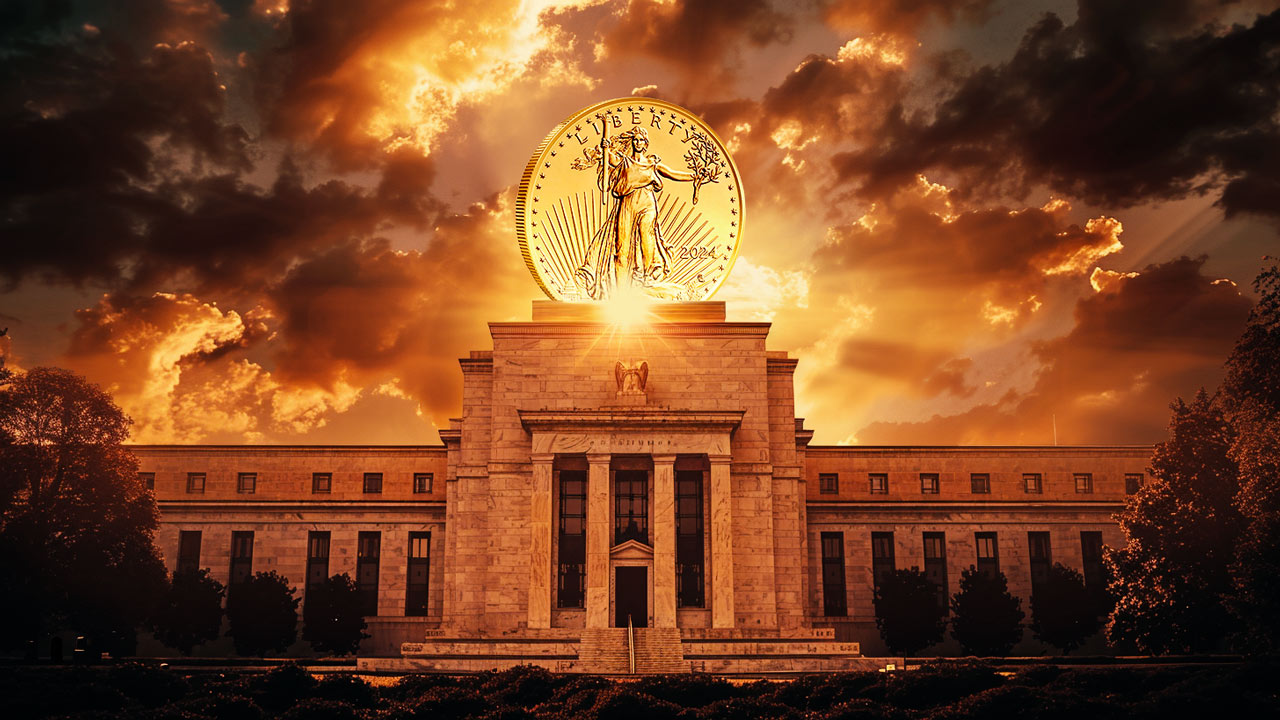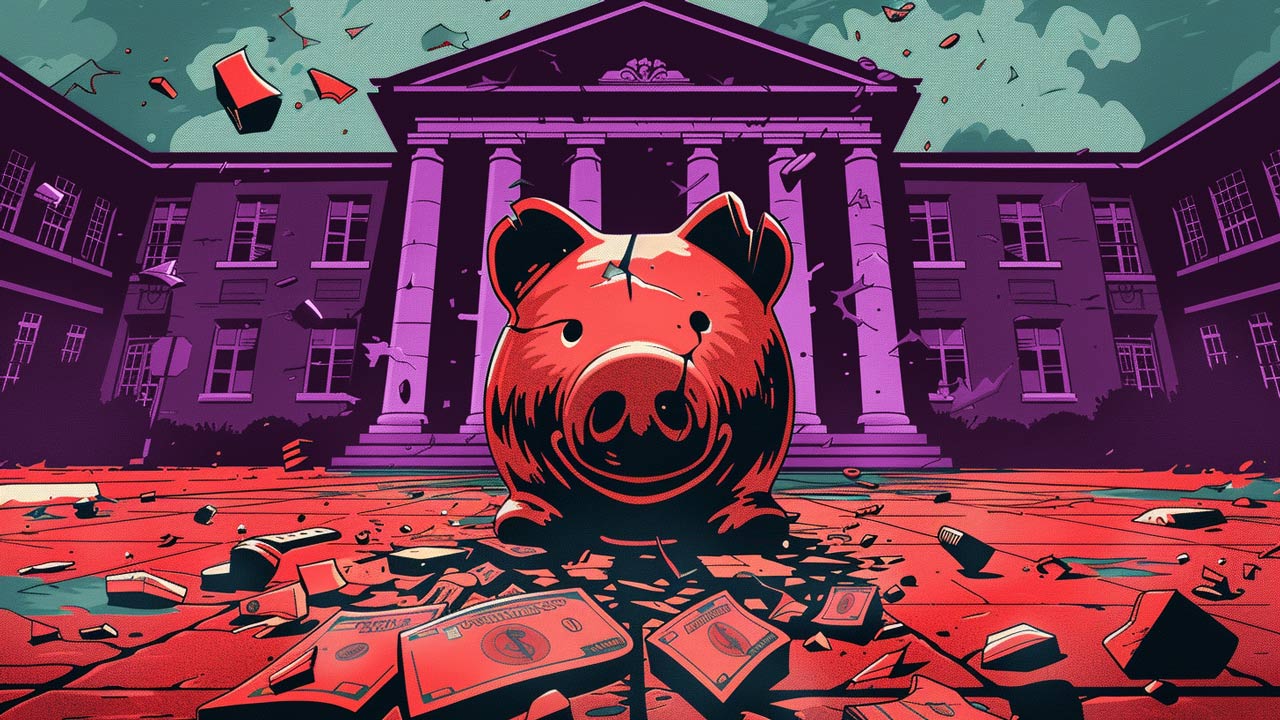Fewer Hires Means Fewer Fires (Audio)
Peter Schiff digs under the surface of the latest economic data. As usual, Wall Street locked onto the headline number last week, which showed the lowest weekly jobless claims in 42 years. Peter asks the question no one else will — is this really the strongest economy America has seen in four decades?
Highlights from the podcast:
“The markets continue to ignore or maybe they’re embracing the bad economic news that keeps coming out, [with] the S&P closing the week at a new record high. The Dow Jones just barely off a record high. While the stock market continues to rise, the dollar continues to fall broadly on the week. In fact, the euro is now about $1.14…
“The entirety of the dollar rally was based on a fantasy… Even though all this bad economic news is coming out, the currency traders haven’t fully accepted what it means. If they did, the dollar would be a lot lower than it currently is. The trend now seems to be in place for a lower dollar. As more and more bad news comes out, expect the dollar to get hammered…
“The weekly jobless claims plunged in the prior week, and people were expecting a bit of a rebound from the 265,000 claims submitted in the prior week. The consensus was a bounce back to 276,000. Instead, we went down another 1,000 to 264,000. This is the lowest number of weekly jobless claims in 42 years. So this got everybody excited: ‘We’ve got a great economy, we’ve got a great labor market, because nobody is getting fired.’ …
“On the surface, maybe that is good news. But I want to try to look beneath the surface and ask the questions that nobody else does. Why is it that so few people are being fired? Is this labor market so strong that it’s stronger than anything in 42 years? Not at all. So why are so few people getting fired? I think the answer is so few people are getting hired. You can’t get fired from a job until you get hired on the job in the first place…
“If we’re not firing a lot of people, we’re not going to be hiring a lot of people to replace them. To me, that’s a much better explanation of why these numbers are so lo. You either got to say that the economy is so great, the labor market is so strong, that the fewest people in 42 years of being fired. That’s a huge stretch. There’s no way you can look at this economy and say it’s the best economy we’ve had in 42 years. What makes a lot more sense, is the economy is so weak that so few people are actually being hired, so we’re seeing a big reduction in people being fired. The labor markets are not seeing the normal turnover that you would get in a healthy economy…
“What’s probably going to happen is that at the end of this year or early next year, the government is going to have to revise down all these jobs that they claimed existed…
“Let’s go on to the major economy news that came out on Monday. First off was the Empire State Manufacturing Index, which had been bad. Last month, the March was actually down 1.19, which was a very very weak number. The consensus was that it’d be up 5, which is still pretty low… What we ended up getting was 3.09. This was below estimates. In fact, it’s the fourth month in a row that index has been below estimates. If you look at what’s going on inside the report, both business expectations – which is how people feel about the business conditions going forward – and hiring declined from April to May…
“Then we got industrial production capacity utilization numbers. These numbers were particularly bad. Industrial production was supposed to be flat. It was down in the month of March. And it was down another 0.3%. Also, capacity utilization was down. 78.4 was the consensus. 78.2 was below the 78.6 of the prior month…
“This is now the fifth consecutive monthly decline in industrial production. This is the longest losing streak that we’ve had in that data point since 2009. Here’s another time when you have to go back to the Great Recession to get economic numbers as bad as the ones we’re getting right now. [We’re] supposedly on the doorstep of a Fed rate hike, because the economy is the strongest it’s every been. We’ve reached escape velocity and now the Fed can raise rates, yet by all these measures we’re right back in the ditch…
“The number that really should have gotten people scratching their heads on Wall Street was the consumer sentiment number. That number was 95.9 in April, and the consensus was for it to hold pretty steady at 95.8. It came at 88.6. That is the lowest level since November 2014, but more importantly it’s the biggest drop since December 2012. Relative to expectations, that was the biggest miss ever. There’s never been a time when they were more wrong on this indicator than they were on this most recent month. If the job market is so strong, why are so many people, why is consumer confidence plunging? Some people are blaming that on the rising gasoline price…
“The percentage of Americans that are worried about losing their jobs in the next five years has risen to its highest level since March of 2009. Why would that be? If the labor market is so tight… why are so many Americans worried that they’re going to get fired? Maybe because they see in their own companies that nobody is being hired…”
Get Peter Schiff’s latest gold market analysis – click here – for a free subscription to his exclusive weekly email updates.
Interested in learning more about physical gold and silver?
Call 1-888-GOLD-160 and speak with a Precious Metals Specialist today!



 With the AI boom and green energy push fueling fresh copper demand, and with copper mines aging and not enough projects to match demand with supply, the forecasted copper shortage has finally arrived in earnest. Coupled with persistently high inflation in the US, EU, and elsewhere, I predict the industrial metal will surpass its 2022 top to reach a […]
With the AI boom and green energy push fueling fresh copper demand, and with copper mines aging and not enough projects to match demand with supply, the forecasted copper shortage has finally arrived in earnest. Coupled with persistently high inflation in the US, EU, and elsewhere, I predict the industrial metal will surpass its 2022 top to reach a […] America’s trust in its institutions has rapidly eroded over the past 20 years. We have a lower level of trust in our judicial system and elections than most European countries. Some of this is natural, as Americans are uniquely individualistic, but much of it arises from repeated government failures.
America’s trust in its institutions has rapidly eroded over the past 20 years. We have a lower level of trust in our judicial system and elections than most European countries. Some of this is natural, as Americans are uniquely individualistic, but much of it arises from repeated government failures. Decades of negative interest rate policy in Japan have ended. That could mean the end of the $20 trillion “yen carry trade,” once one of the most popular trades on foreign exchange markets, and a chain reaction in the global economy. The yen carry trade is when investors borrow yen to buy assets denominated in […]
Decades of negative interest rate policy in Japan have ended. That could mean the end of the $20 trillion “yen carry trade,” once one of the most popular trades on foreign exchange markets, and a chain reaction in the global economy. The yen carry trade is when investors borrow yen to buy assets denominated in […] With a hot CPI report casting a shadow of doubt on the likelihood of a June interest rate cut, all eyes are on the Fed. But they’ve caught themselves in a “damned if they do, damned if they don’t” moment for the economy — and the news for gold is good regardless.
With a hot CPI report casting a shadow of doubt on the likelihood of a June interest rate cut, all eyes are on the Fed. But they’ve caught themselves in a “damned if they do, damned if they don’t” moment for the economy — and the news for gold is good regardless.  It’s no secret that the American public is wildly ignorant of many issues that are central to the success of our nation. Just a generation ago it would have been unthinkable that less than half of the American population could recognize all three branches of government. America is in most cases far less educated about its government […]
It’s no secret that the American public is wildly ignorant of many issues that are central to the success of our nation. Just a generation ago it would have been unthinkable that less than half of the American population could recognize all three branches of government. America is in most cases far less educated about its government […]
Leave a Reply